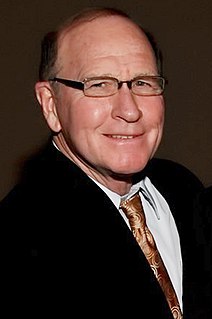A Quote by Martina Hingis
I think the whole boycott thing was a bit too much. It's because we're accomplished so much in women's tennis in the last two, three years. We deserve something better.
Related Quotes
That's what they want: two women. Fellas, I think that's a bit lofty. Because, come on, think about it - if you can't satisfy that one woman, why do you want to piss off another one? Why have two angry women in the bed with you at the same time? And think about it - you know how much you hate to talk after sex, imagine having two women just nagging you to death.
You just do the best you can. It doesn't necessarily mean that you have to get worse the more you do it. It can get better, I think... aspects of it, anyway. I mean, I don't write as much as I used to. But I don't do a lot of things as much as I used to. So that's the natural order of things, too. You're more or less living in the present. You're just trying to get that next song, whatever it is. And not think too much about what happened on the last record, or the record you made 20 years ago, because those are over with. Those are done.
There's a price you pay for drinking too much, for eating too much sugar, smoking too much marijuana, using too much cocaine, or even drinking too much water. All those things can mess you up, especially, drinking too much L.A. water ... or Love Canal for that matter. But, if people had a better idea of what moderation is really all about, then some of these problems would ... If you use too much of something, your body's just gonna go the "Huh? ... Duh!"
Just because you've had one or two of those games, you can't really go back to the next practice and change everything. That's the most important thing in those situations that you don't think too much, you don't try to change too much because then you're going to be in deep trouble, that's what I think. It's all about keep working on what's been successful for you and keep believing what you're doing is the right thing.
It's unwise to pay too much, but it's worse to pay too little. When you pay too much, you lose a little money - that's all. When you pay too little, you sometimes lose everything, because the thing you bought was incapable of doing the thing it was bought to do. The common law of business balance prohibits paying a little and getting a lot - it can't be done. If you deal with the lowest bidder, it is well to add something for the risk you run, and if you do that you will have enough to pay for something better.
There is so much investment in it of people's labor time that it will never make money. But there are other documentaries that you might make that are sort of on assignment for television that turn around in three to six months. Then the margin can be much be better for you because you're not spending three-and-a-half years on it. So I think if you're doing documentary films, that's sort of the way to look at it.






































